Distinguished Ethnobotanists
The award of "Distinguished Ethnobotanist (DEB)" is bestowed annually by the Society upon an individual on the basis of outstanding accomplishments pertinent to the goals of the Society. A nominee does not need to be a member of the Society. The Chairperson of the Nominations and Awards Committee shall be responsible for the citation which shall be published in Economic Botany. The only responsibility of the awardee shall be to present an address at the annual meeting the year of his/her selection. He/she shall become an honorary member of the Society for life.
This award is now open for nominations!
To nominate someone for this award please click here to fill out the SEB Nomination Form. Nominations deadline is June 30, 2025.
Recipients of the Distinguished Ethnobotanist award are:
2025 - Dr. Rajindra Puri
 |
|
Dr. Rajindra Puri is a distinguished Senior Lecturer in Environmental Anthropology and Director of the Centre for Biocultural Diversity at the University of Kent. With an educational background from Middlebury College in Vermont, the University of Hawai'i at Manoa, and the School of Anthropology and Conservation at the University of Kent, Dr. Puri's work focuses on the human ecology of rainforest valleys in Indonesian Borneo. His research meticulously documents traditional ecological knowledge within the Penan Benalui and Kenyah Badang communities, particularly their hunting practices. Additionally, Dr. Puri investigates the causes and consequences of the trade in wild animals and plants, developing innovative theories and methods for applied conservation anthropology.
Dr. Puri is celebrated not only for his research but also for his dedication to teaching. He has mentored numerous Ph.D. and master's students, maintaining a high teaching load while achieving a significant number of publications and citations. His efforts have significantly promoted the discipline of environmental anthropology in Europe, earning him recognition as a distinguished educator and scholar. Through his leadership at the University of Kent, Dr. Puri continues to advance our understanding of biocultural diversity and its critical role in conservation.
2024 - Dr. Mark Merlin
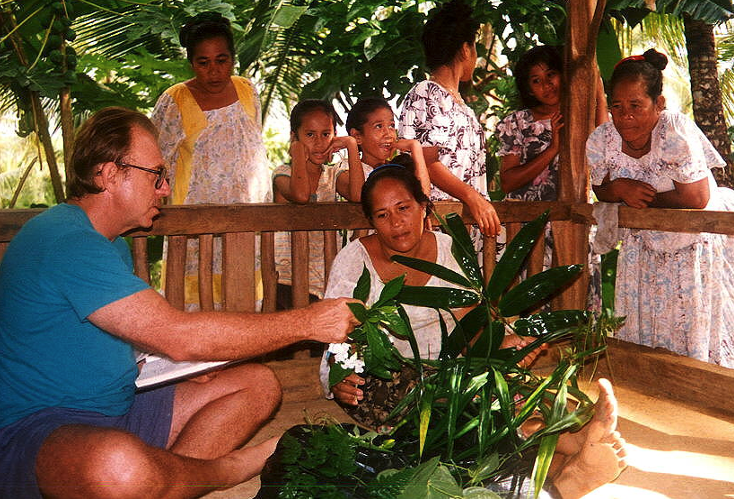 |
|
Dr. Mark Merlin, Professor of Botany at the University of Hawai’i at Mānoa, researches the cultural histories of human-plant interactions with special emphasis on the pan-global, traditional use of psychoactive species. He has also studied the human impact on native vegetation in tropical island ecosystems, both past and present, with a general interest in the natural history of Remote Oceania. His most important impact has been his contributions to foster environmental education and preservation of traditional ecological and ethnobotanical knowledge.
The 2023-24 school year marks an auspicious achievement of his 50th year as an educator. During the past 5 decades, Mark has taught thousands of students in numerous courses with an ethnobotany focus including Psychoactive Drug Plants, Human Role in Environmental Change, Hawaiian Environmental Science, Island Ecosystems, and the Introduction to Ethnobotany. A graduate of the University of California at Santa Barbara (BA) and the University of Hawai`i (MA, PhD -1979), his early research was influenced by the work of Harvard ethnobotanist Dr. Richard Evans Schultes. This work led to his early book publications ‘Man and Marijuana’ (1975) and On the Trail of the Ancient Opium Poppy: Natural and Early Cultural History of Papaver somniferum (1984) based on his dissertation research. He has published numerous peer-reviewed publications and 7 books, most notably Cannabis: Evolution and Ethnobotany (UC Press, 2016), arguably the most comprehensive, interdisciplinary exploration of the natural origins and early evolution of this globally significant plant group. He has twice been the recipient of the society’s Mary W. Klinger Book award.
Dr. Merlin’s career is representative of many outstanding accomplishments pertinent to the goals of the Society. Today, he remains an active member and continues to serve as a faculty mentor and role model for student members. His long, distinguished career exemplifies the scholarly dedication and perseverance needed to succeed in academia and serves as an inspiration to the next generation of today’s emerging scientists. We are thrilled to celebrate his work by bestowing upon him our highest honor, the title of Distinguished Ethnobotanist.
Special thanks to Dr. Michael Thomas for his assistance with this citation.
2023 - Dr. Bradley C. Bennett
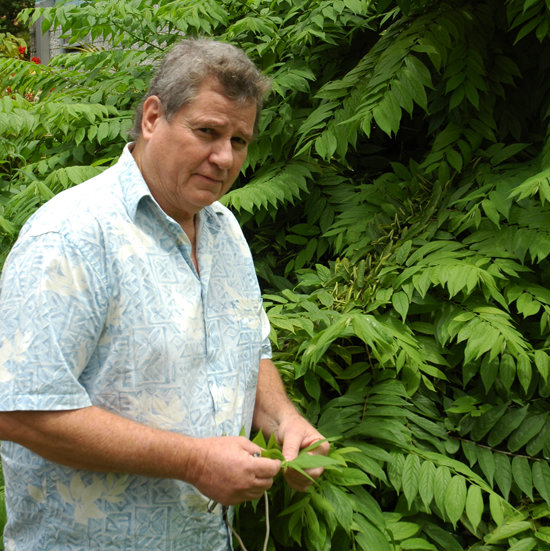 |
|
Dr. Bradley C. Bennett is a Professor in the Department of Biological Sciences at Florida International University. He is a past President (2004-2005) of the Society for Economic Botany. He is a member of the American Botanical Council's Advisory Board and a senior research associate at the National Tropical Botanical Garden's Kampong Garden. His main research focus is ethnobotany in the neotropics. Dr. Bennett and his graduate assistants have worked in Bolivia, Brazil, Cameroon, Costa Rica, Cuba, Ecuador, Guyana, Japan, Mexico, Panama, Peru, and the United States.
2022 - Dr. Diane Ragone
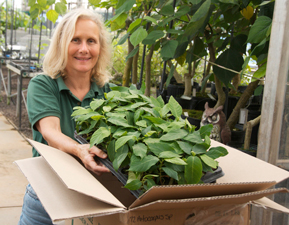 |
|
Diane Ragone, Director of the Breadfruit Institute at the National Tropical Botanical Garden in Hawaii, has been dedicated to conserving, studying, and promoting breadfruit for 35 years. She is the acknowledged expert on this crop.
Through fieldwork on 50 Pacific islands to document breadfruit diversity and associated knowledge she established and curates the world’s largest repository of breadfruit diversity, preserving 150 cultivars—many of them rare and vanishing in their homelands. Numerous researchers and students have worked with Dr. Ragone to systematically study this unique genetic resource with the goal of better understanding breadfruit to enhance its conservation and use.
Dr. Ragone has written or co-authored over 100 peer-reviewed papers, technical reports, and book chapters, as well as popular articles on breadfruit. She has also forged partnerships with universities, botanical gardens, non-governmental organizations, government agencies, communities, businesses, and others to foster appreciation and use of this heretofore underutilized crop. Diane spearheaded a collaborative project to develop new methods to propagate breadfruit. That work was key to launching a global initiative in 2009 to distribute nutritious varieties for food, agroforestry and economic development. To date, more than 100,000 breadfruit trees have been distributed to 44 countries, primarily to smallholder farmers.
Diane’s work epitomizes the field of economic botany through the synergy of horticulture and ethnobotany: quest for knowledge, preservation, conservation, research, creative experimentation, sharing, mentoring, and fulfilling a humanitarian mission. Her involvement with the Society of Economic Botany since 1987 has helped shape and guide her multidisciplinary approach.
2021 - Dr. Pablo Eyzaguirre
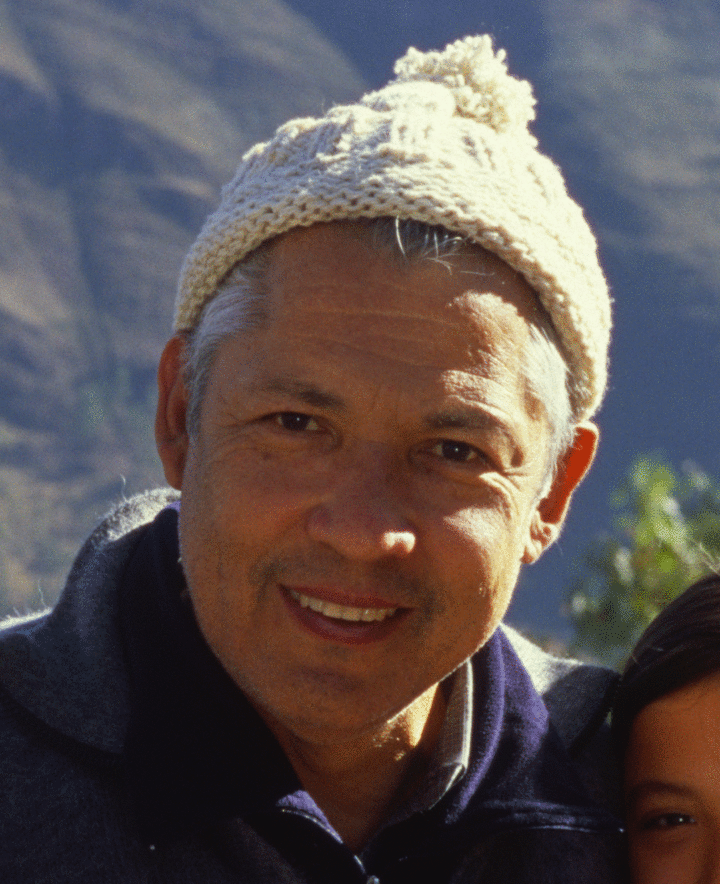 |
|
Dr. Eyzaguirre is best known for his work on agricultural resilience, food security, and climate change in rural communities worldwide. Trained as an anthropologist (PhD, Yale, 1986), his work has been highly interdisciplinary, at the crossroads of nutrition, plant genetic resources, and rural livelihoods. It has often shone light on topics previously overlooked in research and policy: the intersection of nutrition and ethnobotany, for example in the role of leafy wild vegetables, seed conservation in small-scale agriculture, home gardens, gender, and resilience and climate change. Dr. Eyzaguirre’s work has been truly international in scope, starting with fieldwork in west Africa and expanding to take in most regions of the world, and many of the topics that fall within the remit of the Society for Economic Botany.
A truly distinctive element of this life’s work is a commitment to catalysing research and policy development by others. Much of this has been accomplished through Bioversity International, Dr Eyzaguirre’s base for most of his career, and is manifested through countless workshops, reports, policy initiatives and projects that have disseminated skills and methods worldwide. Publications form only a part of this output, but over 5000 citations testify to their impact. Dr. Eyzaguirre has also served the discipline in other ways: as President of the International Society of Ethnobiology (2004-2006), advisor to the Groupe de Recherche Mosaïque (CNRS-CEFE Montpellier), and as member of the science panel for the Programme on Ecosystem Change and Society at the Stockholm Resilience Centre.
This remarkable body of work linking biodiversity and health is more important than ever, given the likely impact of climate on rural communities. We are glad to honour Pablo Eyzaguirre for his critical role in widening the horizons of our community, and his generous sharing of insights and methods that will be essential in the urgent work that lies ahead.
|
2020 |
 Dr. Pablo Ezyaguirre 2021 |
 Dr. Diane Ragone Dr. Diane Ragone2022 |
|
|
|
|
||||
|
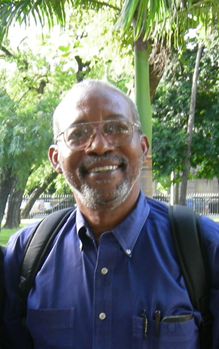 Dr. John Rashford 2019
|
 Dr. Gary Nabhan 2018
|
 Dr. Roy Ellen 2017
|
|
 Dr. Daniel Moerman 2015 |
|
 Dr. Jan Salick 2014
|
 Dr. Will McClatchey 2013 |
 Dr. Djaja Djendoel Soejarto 2012 |
 Dr. Nancy Turner 2011 |
 Drs. Edelmira Linares and Robert Bye 2010 |
|
|
||||
|
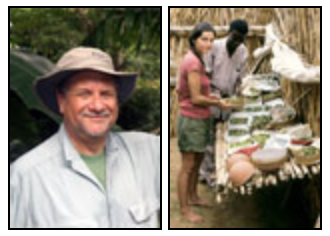 Michael Balick & Nina Etkin* 2009 |
 Brent and Elois Ann Berlin 2008 |
 W. Hardy Eshbaugh 2007 |
 Walter Lewis & Memory Elvin-Lewis 2006 |
 Harold C. Conklin 2005 [ Profile ] |
|
 Gordon Hillman 2004 |
 Daniel Zohary 2003 * |
 Sir Ghillean Prance 2002 |
 Isabella Abbott 2001 * |
 James Duke 2000 |
|
|
||||
|
 S. K. Jain 1999 |
 Hugh. H. Iltis 1998 |
 Carlos Ochoa 1997 * |
 Jack G. Hawkes 1996 * |
 Varro E. Tyler 1995 * |
|
 Walton C. Galinat 1994 * |
 Mildred Mathias 1993 * |
 Douglas Yen 1992 |
 N. W. Simmonds 1991 * |
 Herbert G. Baker 1990 * |
|
|
||||
|
 Jack L. Beal 1989 * |
 Oswald Tippo 1988 * |
 Charles Rick 1987 * |
 E. Hernández X. 1986 * |
 Jack R. Harlan 1985 * |
|
 Charles B. Heiser 1984 * |
 N. R. Farnsworth 1983 * |
 William L. Brown 1982 * |
 William H. Tallent 1981 * |
 T. Whitaker 1980 * |
|
|
||||
|
 R. E. Schultes 1979 * |
 Julia F. Morton 1978 * |
|||
|
* deceased |
||||



 Dr. Tony Cunningham
Dr. Tony Cunningham